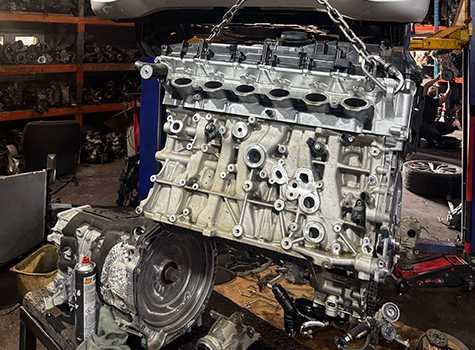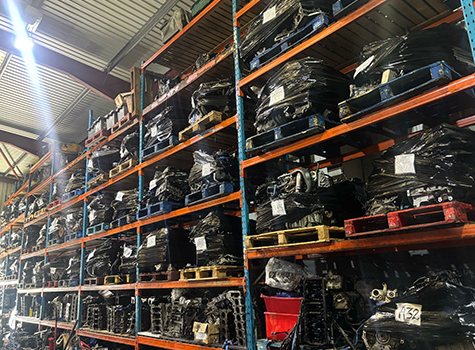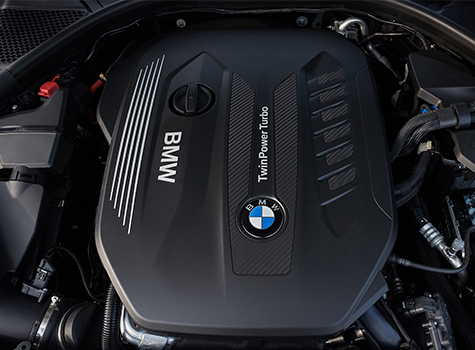Reconditioned BMW 330d Engine Costs, Warranties & Pitfalls
Reconditioned BMW 330d Engine Estimated Costs, Warranties & Pitfalls
If your 3.0-litre diesel is tired or failed, a reconditioned unit can be a smart route back to smooth power. Many owners search for BMW 330d engines for sale and compare reconditioned BMW engines against used or rebuilt options. Below, we keep it simple: clear warning signs, the latest estimated costs, how warranties really work, the biggest buyer pitfalls, and a brief history of the 330d’s engine family.
Is Your BMW 330d Engine in Trouble? Key Signs to Watch For
Hard or smoky cold starts, rising oil consumption, diesel knock, crankcase pressure, repeated DPF regens, metal glitter in the oil, or timing chain rattle (more common on later N57) all point to deeper issues. Loss of boost, limp-mode under load, or coolant pressurising the tank are also red flags. When multiple symptoms stack up, it’s time for replacement or full reconditioning of your existing engine.
What Does ‘Reconditioned Engine’ Actually Mean?

A reconditioned (remanufactured) engine is stripped, cleaned, measured and rebuilt to the factory standards. Wear parts (bearings, rings, seals, chains/belts, gaskets) are renewed; critical items such as the oil pump or timing components are checked and replaced where needed; machining brings the block/head back within spec. Many suppliers build on an exchange basis, so you return your old unit.
Reconditioned vs. Rebuilt vs. Used: Understanding the Difference
- Reconditioned / Remanufactured: Built to a process with machining and measured tolerances, usually with a written warranty.
- Rebuilt: Repairs made to fix the immediate fault; quality varies by where you get your engine rebuilt.
- Used: A breaker’s yard engine removed from another low mileage car; cheapest up front, but history and internal condition are unknown.
The Latest Cost of a Reconditioned BMW 330d Engine
Prices vary by engine code (M57 vs N57), what’s included (bare unit vs ancillaries), and whether supply-and-fit is part of the deal.
The Price of the Engine Unit Itself
Advertised unit only prices for reconditioned 3.0-litre BMW diesels span roughly £2,000–£5,000+, depending on spec and what’s included (bare short vs long engine). For example, some garages show prices from listings around £1,590–£3,295, while others list £5,250 for a fully reconditioned N57 long engine on exchange.
Budgeting for Labour and Fitting Costs
Some independent garages’ labour typically sits ~£50–£80+ per hour (higher in London), and industry data shows rates will change year by year. That means fitting, fluids, and coding can add £600–£1,200+, depending on the number of hours required.
Uncovering the Hidden Costs You Might Face
Allow a contingency for: new fluids/filters, coolant, ancillary gaskets/hoses, engine mounts, and potential extras like a turbo core, injectors, DPF clean, or a new clutch/torque converter where appropriate. Supply and fit package listings for 330d compatible N57 engines commonly appear around £3,000–£3,700; if your quote is far lower, ask what’s missing (e.g., ancillaries, VAT, or warranty length).
Engine Warranties Explained: How to Protect Your Purchase
A written warranty is your safety net. In the UK, consumer law sits behind that warranty, but the document itself sets the practical rules you’ll live with day to day.
What Should a Good Warranty Include?
Clear term and mileage (e.g., 12 months/12,000 miles is common), what parts/labour are covered, who pays transport, and the conditions you must follow (servicing schedule, approved oils, return-to-base procedures). Examples of UK rebuild warranties often state 12 months/12k or 6 months (sometimes unlimited miles).
Reading the Fine Print: Common Exclusions and Traps
Expect exclusions around overheating, contaminated oil, tuning, missed services, or using the car before the first post-install oil change. Remember, the Consumer Rights Act 2015 says goods must be “of satisfactory quality” and “as described,” and faulty goods can trigger repair, replacement or a refund pathway; the warranty cannot remove these rights.
Top 5 Pitfalls to Avoid When Buying a Reconditioned Engine
1. Choosing a Supplier with a Poor Reputation
No shortcuts here. Look for clear build processes, machine-shop capability, and transparent T&Cs (not just glossy ads).
2. Ignoring the Quality of the Parts Used
Ask what brand/spec of bearings, chains, pistons, seals, and oil pump are used, and whether critical clearances are measured and recorded.
3. Accepting a Vague or Limited Warranty
“Back-to-base only” with short cover can be a headache. Aim for at least 6–12 months with stated mileage, and keep every invoice and service record.
4. Overlooking Problems with Associated Parts (e.g., Turbo, Injectors)
A fresh long engine won’t survive if a failing turbo, clogged DPF, or weak injectors are left in place. Budget to test or refurbish these while the engine’s out.
5. Using an Inexperienced Garage for Fitting
Modern diesels need correct torque procedures, timing tools, priming routines, software resets and coding. With labour rates rising, the cheapest option can be the most expensive mistake.
Where to Find a Reliable Reconditioned 330d Engine in the UK?
Search for UK based BMW diesel specialists with in-house machining, written build sheets, and install capability. Compare like for like quotes that spell out: engine code, what’s included (short/long, ancillaries), warranty term/mileage, VAT, delivery/collection, and fitting hours. Cross-check promised prices against live market examples so you know the quote is realistic.
Final Verdict: Is a Reconditioned Engine the Right Choice for You?

If you plan to keep the car and want known internals plus a warranty, a reconditioned 330d engine is often the best value over the long term. Price the unit and the fit, check the warranty, and fix related parts at the same time. Do that, and your 330d can feel factory fresh again without paying new car or brand new engine money.
Frequently Asked Questions:
Q: What engine is in a BMW 330d?
A: A 3.0 litre turbocharged inline six diesel. Smooth, torquey and efficient, it gives strong mid-range pull and relaxed motorway cruising.
Q: Does the 330d have an M57 engine?
A: Early 330d models used the M57 inline six diesel. Later generations moved to the N57, and the most recent versions use the B57. Always confirm by engine code or VIN.
Q: Is the BMW 330d fast?
A: Yes—brisk for a diesel. Depending on year and spec, 0–62 mph is roughly 5.6–7.8 seconds, with strong in gear acceleration for easy overtakes.
Q: Is the BMW 330d a V6?
A: No. It’s a straight six (inline six) diesel, not a V6. The layout is smooth and well balanced, known for refined running.
Q: How reliable is the M57 engine?
A: Well-regarded for durability when serviced on time. Keep oil and filters fresh and the cooling system healthy, and it can rack up big mileages.
Q: What is the most reliable BMW 330d engine?
A: Many rate the M57 as the toughest, but the best choice is the car with full history and careful maintenance—condition matters more than the badge.
Q: What is the BHP of a 330d?
A: Around 201–258 bhp depending on generation, tune and emissions spec. Check your exact year and engine code for the official figure.
Q: Is the BMW 3.0 engine good?
A: Yes. The 3.0 litre straight six diesel is smooth, torquey and economical, delivering effortless pace if maintained properly.
Q: Is the BMW M57/N57 engine reliable?
A: Both can be. M57 is known as stout; N57 is strong, but watch timing chain wear on neglected cars. Good servicing and correct oil are critical.
Q: How much engine oil does a 2006 BMW 330d take?
A: About 7.0–7.5 litres with a new filter. Always verify via dipstick or iDrive and follow the owner’s manual for the exact capacity.
Q: Which engine oil is best for the BMW 330d?
A: Use a quality fully synthetic meeting BMW Longlife 04 (LL 04). In the UK, 5W 30 is common; follow the grade and spec listed in your manual.
Q: What engine is fitted to a 2003 BMW E46 330d Sport?
A: The M57 3.0 litre inline six turbo diesel, known for strong torque and refined cruising.
Q: What is the life expectancy of a BMW 330d?
A: With proper servicing and sympathetic driving, 200k miles or more is common. Poor maintenance or short trips use shorten life.
Q: How much power can a 330d make?
A: Stock is roughly 201–258 bhp. With a sensible remap and healthy hardware, many see around 280–300+ bhp. Prioritise condition and cooling.
Q: Which is better, a 320d or a 330d?
A: 330d offers more power, refinement and effortless torque; 320d is usually cheaper to buy and run. Choose based on budget and driving style.
Q: What’s better, a 330i or a 330d?
A: 330i gives high rev petrol character; 330d delivers diesel torque and economy. Your mix of town vs motorway and driving feel should decide it.
Q: Is the 2017 330d reliable?
A: Usually, if serviced on schedule. Listen for timing chain noise, check EGR work, DPF condition and full service records before buying.
Q: What is the difference between a 330d and a 340d?
A: 340d is newer and more powerful, often with xDrive and mild hybrid tech. 330d is lighter and cheaper to buy, yet still quick and efficient.
Q: How much does it cost to replace a head gasket on a BMW?
A: Typically, £800–£1,800+ in the UK, depending on model, access and any machining needed. Ask for an itemised quote including fluids and bolts.
Q: Is it cheaper to rebuild or replace an engine?
A: If your block and crank are reusable, a rebuild can be cheaper; replacement is faster but often pricier. Compare itemised quotes like for like.
READ MORE